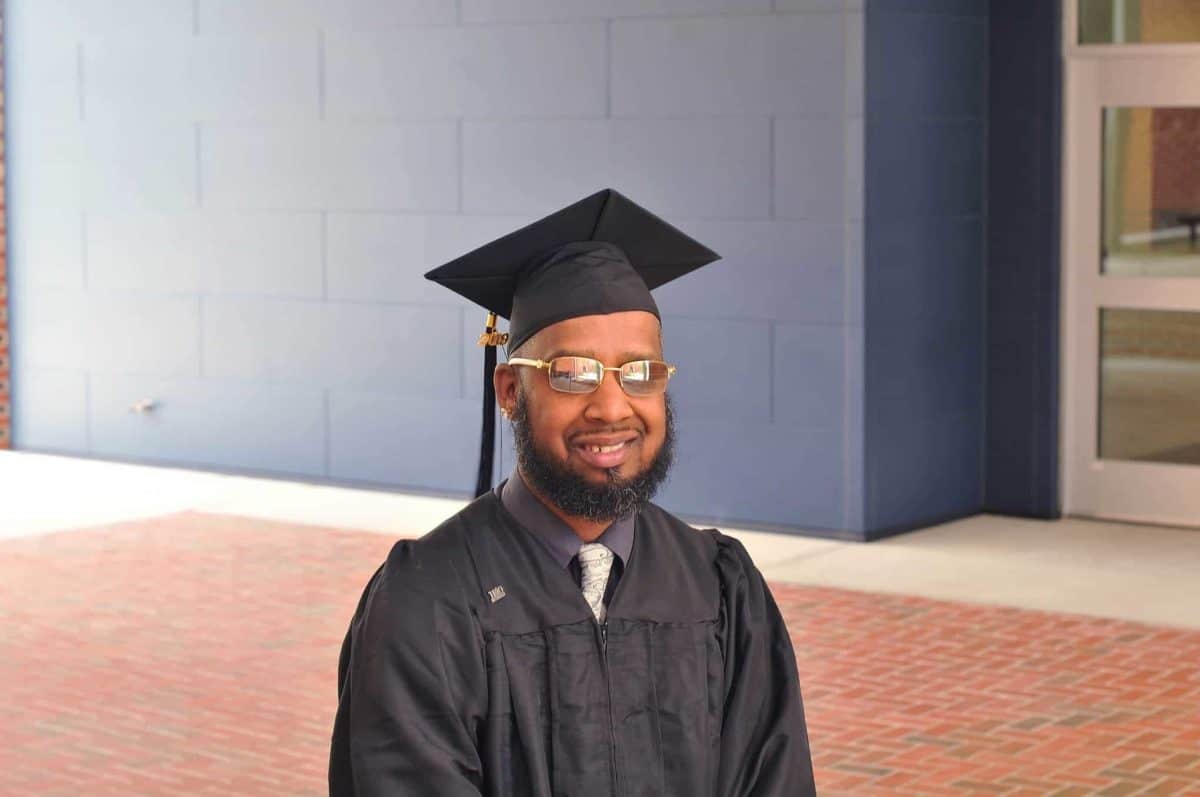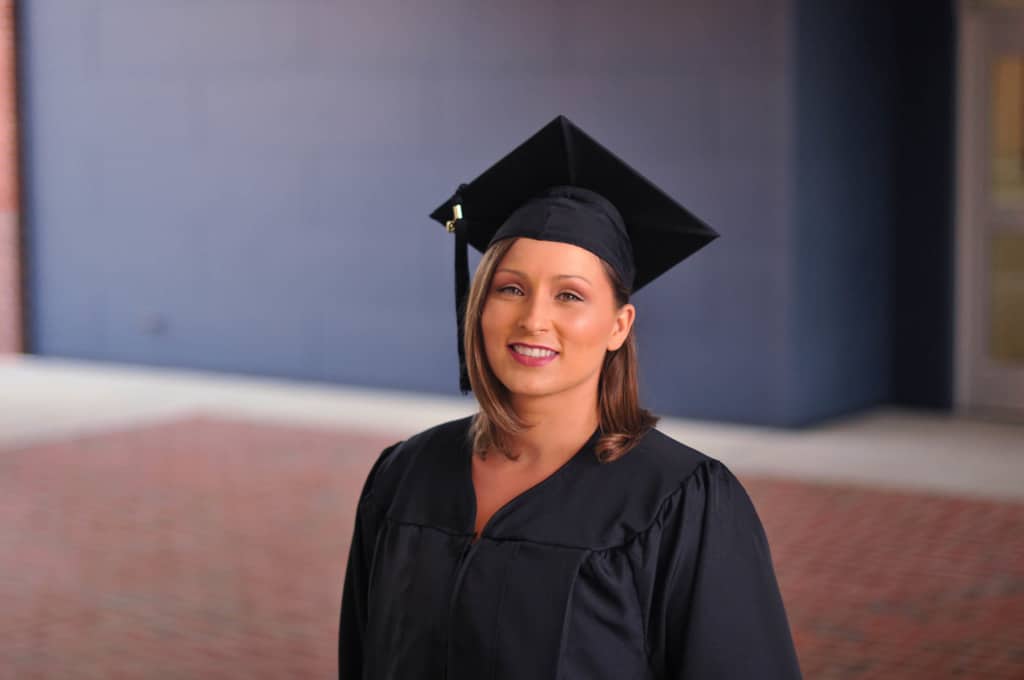

Vida Marie Otero was closing in on her college degree when life got very complicated. With the increasing demands of her nursing program — not only the usual lecture courses, but another 120 hours of supervised clinical work — she couldn’t keep up with her regular job. And not having a steady job only intensified the pressure she was facing.
“I was in a difficult situation,” Otero said, looking back at her recent spring semester at Central Carolina Community College. “I actually lost my job that last semester of nursing school because I wasn’t able to put in the hours they required.
“If it wasn’t for the assistance, I wouldn’t have been able to finish school.”
That assistance was the Finish Line Grant, a statewide award that helps community college students complete their training and enter the workforce.
It’s not that Otero hadn’t thought carefully about her education. She began at CCCC about a decade earlier, completing her diploma in practical nursing before working six years as a Licensed Practical Nurse. When it was time to advance in her career, she returned to the college to pursue the Associate Degree in Nursing, a rigorous curriculum that prepares students to take the national licensure exam to become a Registered Nurse.


Because of her previous study and work as a Licensed Practical Nurse, she was able to pack all of her coursework into a single year, which made the degree affordable. Still, as for many students, she needed a little help right there at the end. For Otero, the Finish Line Grant provided much-needed money to pay bills as she navigated those final months to graduation.
It was a success. She graduated in May, passed the national exam in June and has already accepted a job. In late August, she begins work as a Registered Nurse at Duke Regional Hospital in Durham.
That’s exactly what state officials had in mind when they created Finish Line Grants a little more than one year ago.
“We launched Finish Line Grants after hearing countless stories of community college students working hard to better their lives but getting thrown off course by a financial emergency,” said Gov. Roy Cooper in a July press release marking the first anniversary of the grant initiative. “Finish Line Grants are helping hundreds of students get good-paying jobs by making sure a hospital bill or car repair doesn’t stop them in their tracks. North Carolina employers need talented workers, and Finish Line Grants are one way we’re making sure they can find them.”
According to Cooper, more than 1,700 community college students statewide completed their education over the last year with assistance from Finish Line Grants. Under the guidelines, recipients must be at least halfway through their degree or credential training program to receive a maximum grant of $1,000 per semester to help overcome financial emergencies that students face through no fault of their own.
Grants are awarded through a network of regional workforce development boards across the state. For Central Carolina Community College, that is the Triangle South Workforce Development Board, which helps strengthen the regional workforce and provides job training in Chatham, Harnett, Lee and Sampson counties.
Rosalind Cross, Director of Workforce Development for Triangle South, said 65 students at CCCC were awarded a total of $46,756 in Finish Line Grants — for an average of $719 per recipient. Another 42 students at Sampson Community College received a total of $38,463, an average of $916 per person. Assistance was provided for a wide variety of qualifying needs, including transportation, child care, utilities, educational costs and medical bills.
Cross said she has already received positive feedback from students who might not have been able to finish their education if it had not been for Finish Line Grants. “This funding has eliminated or significantly decreased barriers, allowing students to finish what they started,” she said. “It has allowed students the opportunity to get back to focusing on their course of studies, instead of worrying about how they will pay for unexpected expenses or emergency needs.”
It also has allowed graduates to move forward in their lives.
Bradley Baker was another CCCC student to receive a Finish Line Grant as he worked to complete his Certificate in Audio/Radio Production and Performance. As he entered his final semester, Baker found himself getting further and further behind financially, struggling to handle mounting living and educational expenses. If it hadn’t been for the grant, he would have finished his coursework — but still be working to pay off his tuition bill over time, so he could finally receive the certificate he had already earned.
Looking back, Baker is thankful for the help and had something to say to students who qualify for the grants and are struggling financially to complete their educations.
“I’ve got one word of advice,” he said. “Take advantage of it!”


